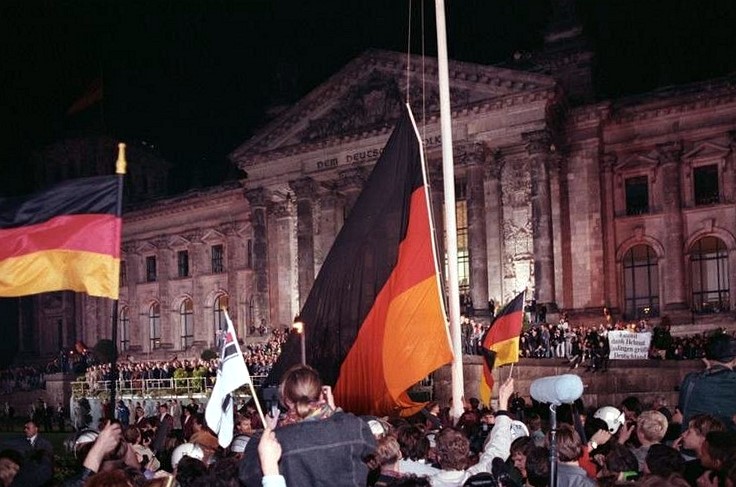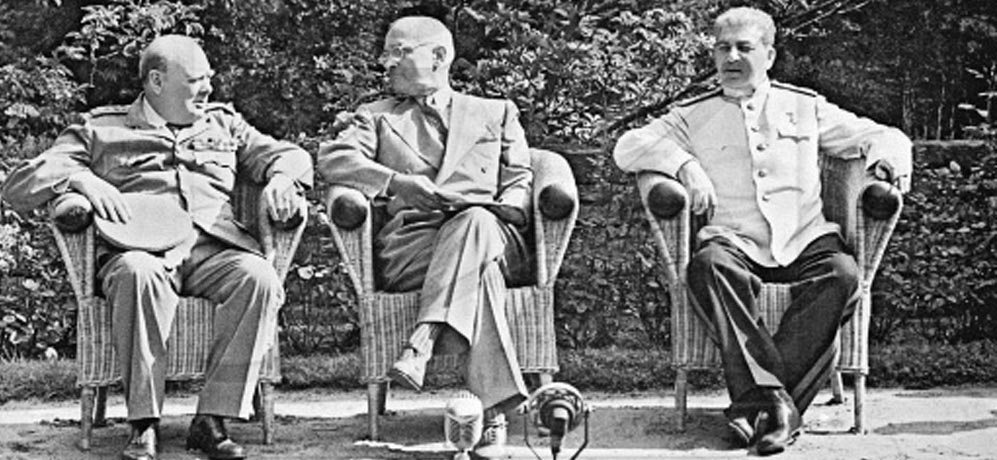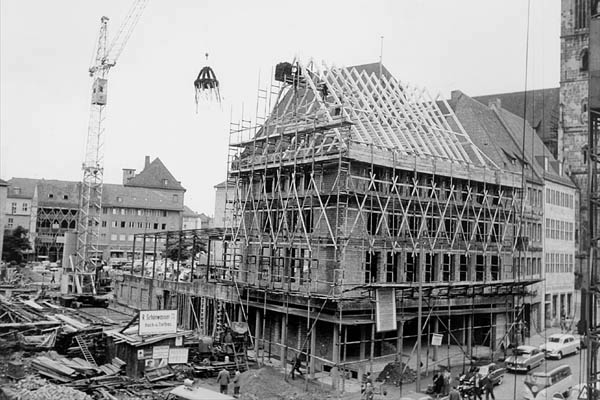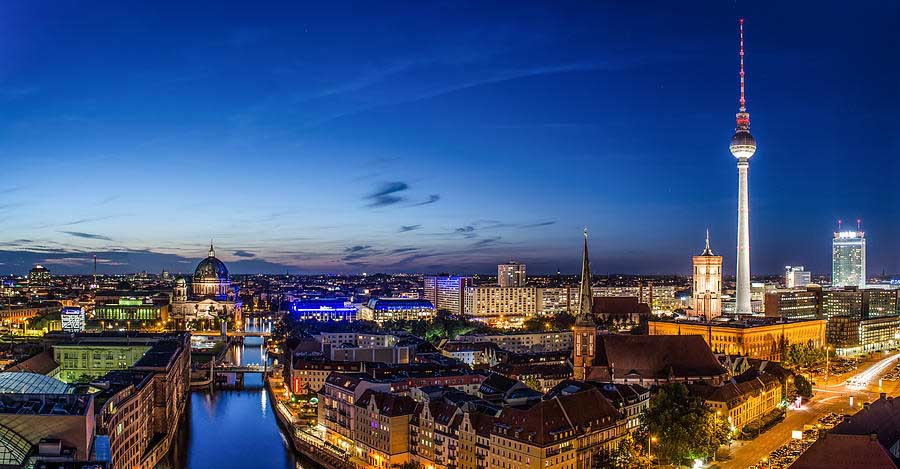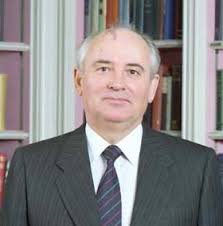
Mikhail Gorbachev was instrumental in the fall of the Berlin wall and the end of the cold war.
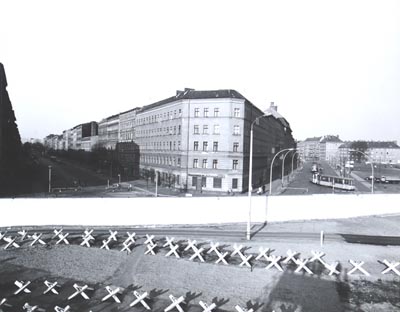
"The Anti Fascist Protection Barrier".
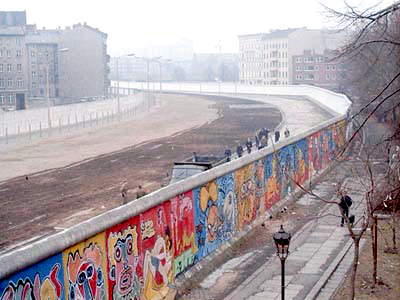
The Berlin wall was used as a canvas for many artists.
Perestroika
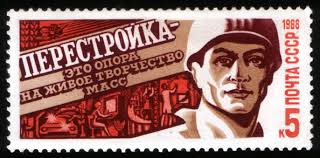
Perestroika is the name for a political movement which bought about reform within the Communist party of the Soviet Union during the 1980’s, it is said by many to be a direct consequence of Mikhail Gorbachev’s Glasnost policy in which he looked to reform the party whilst keeping their hold on the USSR, a policy which backfired disastrously and along with the Perestroika ultimately led to the end of The Soviet Union and indeed the Cold War. The literal meaning of Perestroika English is restructuring and refers to the reform of the Soviet economic and political system.
The initial aim for the Perestroika was to modernise the economic and command structure to make socialism work better for the citizens of the Soviet Union by allowing more independent actions within ministries and states but had the reverse effect. The implementation merely progressed the nationalist movement by increasing economic, cultural and social tensions within the Soviet Union.
Perestroika referred to by Mikhail Gorbachev introduced from the beginning of 1986 the process to restructure and modernize the social, political and economic system of the Soviet Union, of the Unity Party CPSU dominated.
The process was closely linked with the abolition of restrictions on expression and freedom of the press in the Soviet Union under the slogan of glasnost (literally: openness, freedom of speech, freedom of information). The term referred to a large part of society and meant in a broader sense, the democratization of the state from 1986. The perestroika included first loosening the party directives in the policies of the centrally planned economy. So companies have been granted since 1987 the power to independently make decisions. This was an important turning point in the era of socialism, at the first elements of a market economy were introduced.
In March 1985 When Mikhail Gorbachev wash the Secretary-General of the CPSU the economic situation in the Soviet Union was not in a great state. In many areas of industry, the production figures were down, the quality of products often did not meet the international standard. There was an inefficient and non-transparent shadow economy.
Agriculture was not able to provide for the population adequately. The management of land, whi
ch the Kolchosebauern were granted as private plots (5% of production area), was unable to offset the systemic weaknesses.
The science and technology did not comply with the general trend. The declining number of citations in scientific journals is an indicator of the decline. In major high-tech region, the Soviet Union was increasingly lacking behind other nations.
Spending on the military and armament burdened the already stretched the economy and the Soviet-Afghan War reinforced this negative trend.
The administration and the management did not have the necessary qualifications for leadership of the country and the economy, as party work, target fulfilment and line loyalty were important virtues but reliable information about the status of the country were only partially available.
Gorbachev and his advisers knew that things were bad and quick action was needed. He and the reformers in the party set out to carry out reforms in the party, state and economy.
Gorbachev’s team of reformers, Yakovlev, Medvedev, Sagladin, Frolov and Slunkow. Economic experts and scientists as Abalkin, Pavlov, Sitarjan, and Popov supported the new course. Prime Minister Ryzhkov welcomed the approach to reform, other Politburo members were said not to be in favour of the changes.
Perestroika Domestic Policy
From mid-1988, the Perestroika promoted socialism mainly through principle of free elections, separation of powers and expanding the rule of law principle to give a democratic face and thereby the entire Eastern Bloc stability, the privileged position of the Communist Party of the Soviet Union (CPSU) should be retained. The domestic reforms were referred to by Gorbachev as Demokratisaziya (Russian: Демократизация, "democratization").
At the 19th Party Conference of the CPSU in June, the Panel decided to convene a People's Deputies Congress as the supreme legislative body leading to elections with and inceased choice of candidates. This open campaign with some direct television transmission of debates, caused great astonishment among the population as Gorbachev hoped to break up encrusted political structures in this way, and thus to find more support for his reforms in the political apparatus.
Perestroika Foreign Policy
The plan was to find greater prosperity for Soviet Union citizens which meant a slowdown in the arms race with the USA.
The communist system of government was no longer relevant. With the abolition of the Brezhnev Doctrine every socialist state could freely decide which state ideology they wanted to follow. Gorbachev declared that if a state should decide to turn away from socialism, the Soviet Union would not intervene. This also encouraged allied countries with the Soviet Union to reform.
Perestroika Economic Policy
In July 1987 the Soviet state adopted the"Law on state-owned enterprises", whereby state-owned enterprises were allowed to adjust their production to meet the actual demand. Although the company had to continue to comply with government contracts, but otherwise could produce and distribute as they wish. By law, companies were responsible for their own finances: they had to be covered by revenue spending (wages, taxes, material and liabilities). In addition, they were able to negotiate prices freely with their suppliers. The government stopped saving unprofitable firms from impending bankruptcy. In addition, the law shifted control of the company from ministries to elected workers' collectives. The task of Gosplan (Государственный комитет по планированию, State Committee for Planning) was to define only general guidelines and priority national investments, no more detailed production plans.
Manufacturing and foreign trade were allowed again. The law originally included high taxes and employment restrictions, but was later corrected in order not to restrict the activities in the private sector. Under these provisions cooperative restaurants, shops and manufacturers remained part of the Soviet economy.
Gorbachev brought perestroika to an extent in the foreign trade sector of the Soviet Union, which was called at this time of Soviet economists as foolhardy. His program eliminated in principle the former monopoly of the foreign trade ministry. Industrial and agricultural ministries had now no longer apply to the bureaucratic organizations of the Foreign Trade Ministry, but were able to conduct foreign trade independently in their jurisdiction. In addition, regional and local organizations were allowed to operate foreign trade. These changes were an attempt to eliminate a major grievance in the Soviet foreign trade: the lack of contact between Soviet end users and suppliers and their foreign partners.
The most significant external Reform Gorbachev allowed foreigners to invest in the Soviet Union in the form of joint ventures with Soviet ministries, state-owned enterprises or cooperatives. The first version of the Soviet "Joint Venture Law" entered into force in June 1987th. They allowed a foreign share of no more than 49 percent in the joint venture and demanded that the Presidency and Management were occupied by the Soviets. After complaining potential Western partners, the Government allowed foreigners to the majority and control over the joint venture. Under the terms of the "Joint Venture Law" presented the Soviet partners manpower, infrastructure and a potentially large domestic market available. The foreign partner supplied capital, technology, business expertise and in many cases, products and services.
Gorbachev's economic changes brought about no new beginning in the lumbering economy of the country in the late 1980s. Although the reforms decentralized many things, but the fixed prices remained well composed as the non-convertibility of the Ruble and the government control over a large part of the production.
Perestroika Consequences
The XIX. Party Conference of the CPSU of June 1988, as expected, confirmed the initiated economic reforms. State and party functions were to be unbundled. First signs of a right-wing conservative opposition were still recognizable. "The fact that the birth of the free market program is designed so difficult, was driven to a degree by increasing differences with the democratic opposition and a part of the public." Gorbachev described the development.
At the XXVIII Congress of the CPSU in July 1990 the conservative forces of Kryuchkov, Slunkow, Yazov, Vorotnikov and Baklanov already had the upper hand, while Boris Yeltsin joined neither the reformers nor the opponents side. The implementation of perestroika to the Union countries led to endless negotiations and delays. The Union countries targeted more independence and a new union treaty by the end of 1990 but reforms were delayed. Only in March 1991, a resolution was passed for price reform by the Cabinet.
Gorbachev, however, did not consider in its deliberations that the mood in the Soviet bloc already started to bubble. A commitment to reform on the part of the Soviet Union seemed to the people as a signal, leading them to demand more and more freedoms for reform throughout the area of influence of the Soviet Union and allowed them eventually to bring the entire Soviet bloc system to waver.
Economic Consequences
Gorbachev's new economic system was neither planned nor market economy and left the Soviet economy stagnating. In 1991 Soviet gross domestic product declined by 17 percent. Open inflation was a big problem in 1990-1991, consumer prices rose in the Soviet Union by 140 percent.
Under these circumstances, the overall quality of life decreased. The public was accustomed to the scarcity of durable goods, but under Gorbachev food, clothing and other basic necessities were also scarce. Since Gorbachev's glasnost had led to a more liberal atmosphere and more readily available information that public discontent was evident with the economic situation than ever before in the Soviet Union. Foreign trade sector showed signs of decay. The debt in hard currency were visibly larger and the Soviet Union, which had previously always repaid their debts amassed considerable arrears by 1990.
According to Gorbachev in March 2010, the reforms came too late and the shock therapy did more harm.

